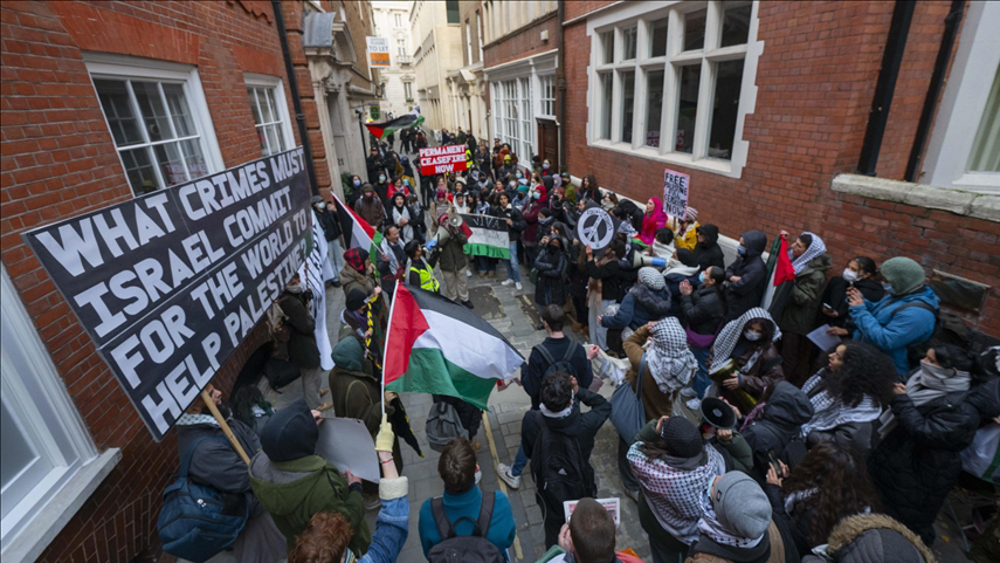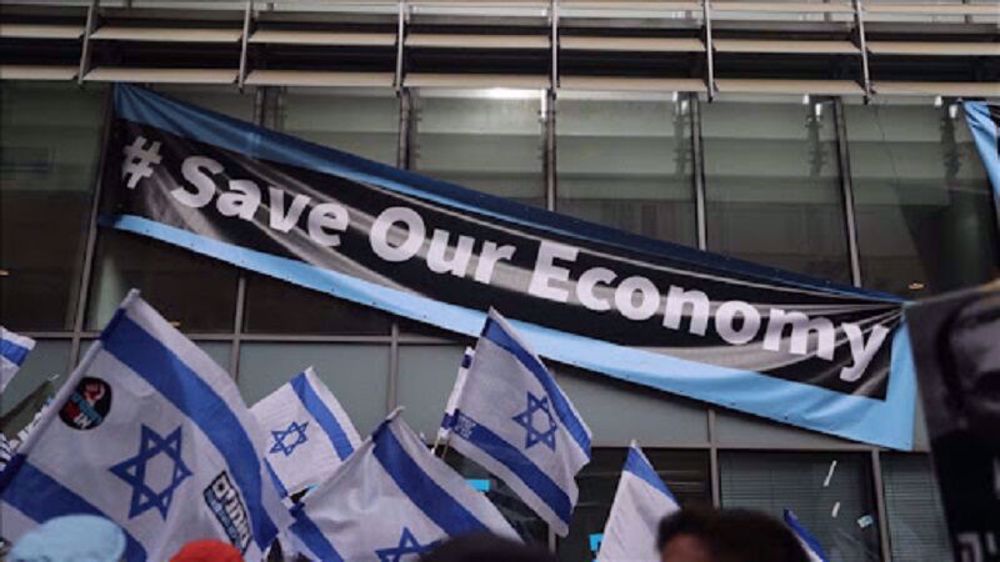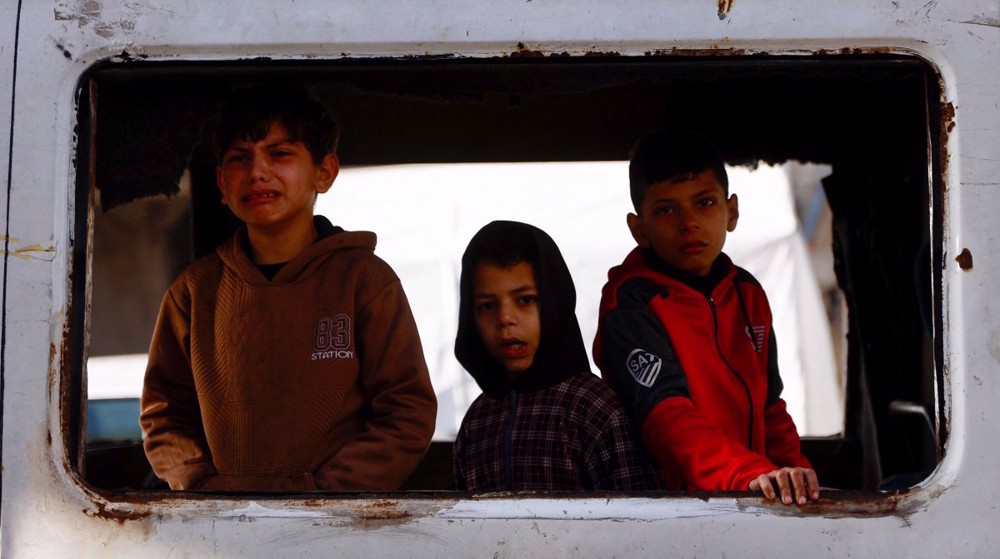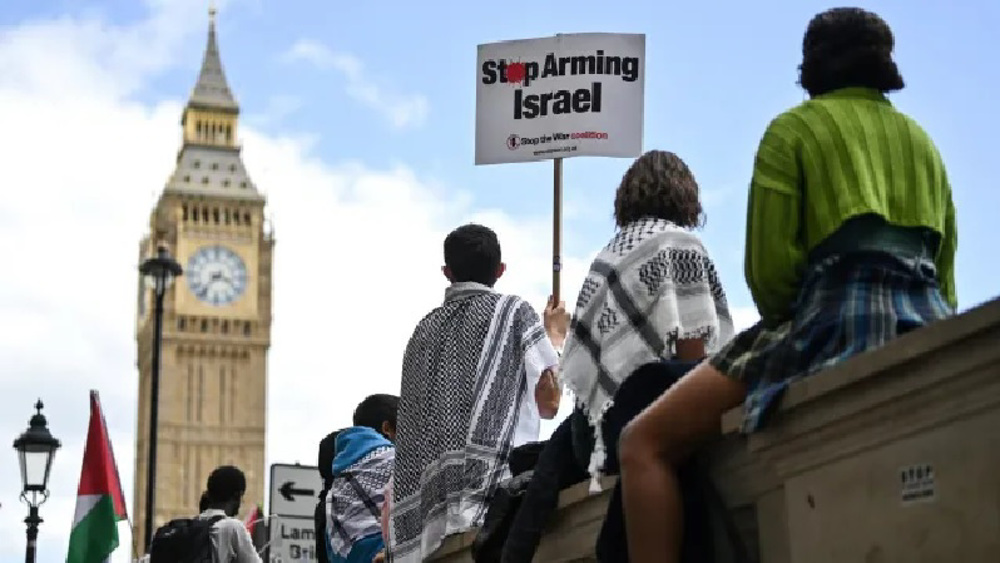UK’s Barclays divests from weapons company Elbit, deals new blow to Israel
One of Britain's largest and oldest banks, Barclays, has divested from Israeli weapons company Elbit Systems amid the genocide in Gaza, dealing a new blow to the Zionist entity's crumbling economy.
Media reports said on Thursday that the bank sold all of its shares of Elbit Systems, the Israeli regime’s largest weapons and munitions manufacturing firm.
After dumping the 16,345 shares Barclays owned in May, worth over $3,400,000, now Barclays had no holdings in Elbit Systems, according to the latest US Securities and Exchange Commission (SEC) filings.
The London-based bank, which had been targeted in May by pro-Palestinian activists disrupting the British bank's annual shareholders' meeting, has been rebuked for providing financial aid to firms that produce military equipment used by the Israeli forces in the Gaza genocide.
Since October 2023, the Israeli forces have killed more than 43,163 Palestinians, mostly women and children, prompting activists in the UK to undertake 54 protest actions against Barclays premises nationwide.
Protests against Barclays' financial aid to the Israeli weapons manufacturer included smashing windows and spraying red paint symbolizing Palestinians’ blood at the bank's nationwide branches, many of these actions put Barclays sites out of operation for weeks, actions which sought to raise the costs associated with investing in the Israeli firm.
Following the nationwide protests, Barclays said it would “cease any relationship” with entities that “evidence” proved were producing internationally-banned cluster bombs.
In the meantime, the Israeli regime has sold billions of dollars worth of debt to finance its widening budget deficit caused by its war on Gaza and Lebanon, including a record $8 billion international bond sale in March, according to the Financial Times.
US credit rating agency Fitch Ratings declared that it kept a negative outlook about Israel’s economic prospects, downgrading the regime’s credit ratings.
“In addition to human losses, could result in significant additional military spending, destruction of infrastructure and more sustained damage to economic activity and investment, leading to a further deterioration of Israel’s credit metrics,” Fitch added. The downgrade highlights the negative financial impact of the ongoing Israeli war on West Asia.
As the economy in Israel crumbled, the momentum downward was given a boost when Iran executed Operation True Promise II. The Israeli regime has suffered not only a huge military setback but now faced more jitters and withdrawals from investment, including increasing migration out of the occupied lands.
Hamas condemns Israel's 'fascist settler-colonial' project aimed at annexing West Bank
Iran's Greco-Roman wrestling team wins championship title at Zagreb Open 2026
VIDEO | UK arrests Press TV contributor amid crackdown on pro-Palestine activism
VIDEO | Axis of Resistance stands as multinational front for justice
Swiss academics call for end to research treaty with Israel over Gaza genocide
VIDEO | Israeli regime harasses, tortures Gazans returning through Rafah crossing
Israel faces existential threat of internal collapse before centenary, general says
Police fire tear gas as protests erupt against ICE and Israel at Milan Winter Olympics














 This makes it easy to access the Press TV website
This makes it easy to access the Press TV website